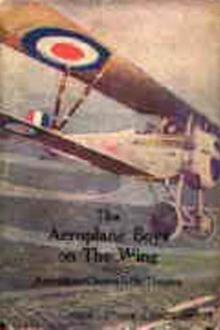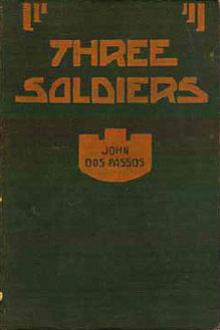Genre Fiction. Page - 204

never would Frank be apt to forget the look of absolute terror he discovered upon the agonized face of the bully. Puss had detected the presence of some one near by, and was trying to shout, as well as stretch his appealing hands out, though not with much success.
He actually went under while Frank looked; and the heart of the would-be rescuer almost stood still with a terrible fear that that was the end.
But he kept on, and in another moment a head once more bobbed up, with Puss threshing the water frantically. Once he had gone down. According to what most people said, he would possibly vanish twice more, and after that never rise again.
If anything was to be done, there was no time for delay. Frank was within ten feet of the struggling figure when it came up. He immediately dove, and managed to rise to the surface behind Puss. Then, just as the other was floundering beneath the surface of the agitated water again, Frank caught hold of his sweater close to his neck, and held on with migh

minutes longer! Yvonnehas been trying on my fancy dress, but she's nearly done."
The neck and shoulders below the laughing face were bare and a bare armwaved in a propitiatory fashion ere it vanished.
"Looks as if the fancy dress is a minus quantity," observed Billy to hiscompanion with a grin. "I didn't see any of it, did you?"
Scott tried not to laugh. "Your sister?" he asked.
Billy nodded affirmation. "She ain't a bad urchin," he observed, "assisters go. We're staying here along with the de Vignes. Ever met 'em?Lady Grace is a holy terror. Her husband is a horrible stuck-up bore ofan Anglo-Indian,--thinks himself everybody, and tells the most awfulhowlers. Rose--that's the daughter--is by way of being very beautiful.There she goes now; see? That golden-haired girl in red! She's another ofyour beastly star skaters. I'll bet she'll have that big bounder cuttingcapers with her before the day's out."
"Think so?" said Scott.
Billy nodded again. "I suppose he's a prince at least. My

an air of good-humoured sang froid which was peculiar to him, Foster said--
"Captain, don't you think I've had these bits of rope-yarn on my wrists long enough? I'm not used, you see, to walking the deck without the use of my hands; and a heavy lurch, as like as not, would send me slap into the lee scuppers--sailor though I be. Besides, I won't jump overboard without leave, you may rely upon that. Neither will I attempt, single-handed, to fight your whole crew, so you needn't be afraid."
The stern Moor evidently understood part of this speech, and he was so tickled with the last remark that his habitual gravity gave place to the faintest flicker of a smile, while a twinkle gleamed for a moment in his eye. Only for a moment, however. Pointing over the side, he bade his prisoner "look."
Foster looked, and beheld in the far distance a three-masted vessel that seemed to bear a strong resemblance to a British man-of-war.
"You promise," said the captain, "not shout or ro-ar."

his pads out crossin' the lava beds, though what in time any hombre who ain't plumb loco is trapesin' round there for, beats me. There is some grazin' on top of the Cumbre mesa, enough for a small herd, but the other side is jest plain hell with the lights out, one big slice of desert thirty mile' wide."
"Minin' camp over that way, ain't there?"
"Was. There's a lava bed strip of six-seven miles at the end of the pass, then comes a bu'sted mesa, all box cañon an' rim-rock, shot with caves, nothin' greener than cactus an' not much of that. There's a twenty per cent. grade wagon road, or there was, for it warn't engineered none too careful, that run over to the mines. I was over there once, nigh on to ten years ago. They called the camp Hopeful then. Next year they changed the name to Dynamite. Jest natcherully blew up, did that camp. Nothin' left but a lot of tumbledown shacks an' a couple hundred shafts an' tunnels leadin' to nothin'. Reckon this P. Casey is a prospector, Sam. One of them

es that they have something like a quarter of a million dollars buried in tin cans among the brush over there now--"
"It is their form of stocking," put in Charlie Webster.
"Precisely. Well, as I was saying, those old fellows would bury their hoards in some cave or other, and then go off--and get hanged. Their ghosts perhaps came back. The darkies have lots of ghost-tales about them. But their money is still here, lots of it, you bet your life."
"Do they ever make any finds?" I asked.
"Nothing big that I know of. A jug full of old coins now and then. I found one a year or two ago in my garden here--buried down among the roots of that old fig tree."
"Then," put in Charlie, "there was that mysterious stranger over at North Cay. He's supposed to have got away with quite a pile."
"Tell me about him," said I.
"Well, there used to be an old eccentric character in the town here--a half-breed by the name of Andrews. John will remember him--"
John nodded.

s duty by me, and had no desire to hear from me in the future. I was inclined to send the money back to him, but Father O'Leary persuaded me not to do so, saying that I must be in a position to buy these things, if I obtained a commission; and that, no doubt, the money had been given me, not for my own sake, but because he felt that he owed it to me, for some service rendered to him by my father."
"It was an ungracious way of doing it," O'Sullivan said, "but, in your circumstances, I should have taken the money had it come from the old one himself. It is, perhaps, as well that it should have been done in such a manner that you may well feel you owe no great gratitude towards such a man."
"And how did you get over here?"
"There was no great difficulty about that. In spite of the activity of the English cruisers, constant communication is kept up between Ireland and France, and fortunately I had, a short time before, made the acquaintance of one of your officers, who was over there, in disg

opportunity, and made the most of it. She had not contented herself with bowing to the inevitable, she had stretched out her hand to it, and forced herself to smile graciously at it, and her polite attentions had been reciprocated. Lady Shalem, without being a beauty or a wit, or a grand lady in the traditional sense of the word, was in a fair way to becoming a power in the land; others, more capable and with stronger claims to social recognition, would doubtless overshadow her and displace her in due course, but for the moment she was a person whose good graces counted for something, and Cicely was quite alive to the advantage of being in those good graces.
"It would be rather fun," she said, running over in her mind the possibilities of the suggested supper-party.
"It would be jolly useful," put in Ronnie eagerly; "you could get all sorts of interesting people together, and it would be an excellent advertisement for Gorla."
Ronnie approved of supper-parties on principle, but he was also

h of science.
While father and son were deep in a discussion of the apparatus of the submarine, there will be an opportunity to make the reader a little better acquainted with them. Those of you who have read the previous volumes of this series do not need to be told who Tom Swift is. Others, however, may be glad to have a proper introduction to him.
Tom Swift lived with his father, Barton Swift, in the village of Shopton, New York. The Swift home was on the outskirts of the town, and the large house was surrounded by a number of machine shops, in which father and son, aided by Garret Jackson, the engineer, did their experimental and constructive work. Their house was not far from Lake Carlopa, a fairly large body of water, on which Tom often speeded his motor-boat.
In the first volume of this series, entitled "Tom Swift and His Motor-Cycle," it was told how he became acquainted with Mr. Wakefield Damon, who suffered an accident while riding one of the speedy machines. The accident disgus

kes and grub."
"Yours truly," responded the other. "When you land in the calaboose for this racket I'll keep you in tobacco. What name shall I ask for?"
"If I land there you can ask for a damfool--and I'll answer the first time," laughed the holdup over his shoulder. "Next gent! Here's the little bag. Lady, keep your weddin' ring. You fat sport, stand up till I see what you're sittin' on. Why, was you tryin' to hatch out that bunch of money? I'll surely do that incubatin' myself."
He levied tribute swiftly, in spite of his badinage, and the gunny sack sagged heavier and heavier. As he reached the end, his companion, who had dominated the passengers with his gun, abandoned his position and came down the aisle. At the rear door he turned.
"Keep your seats till the train moves," he ordered harshly. "I'm layin' for the first man that sticks his head out of this car."
Behind him the coach buzzed like a disturbed hive. Its occupants bewailed their losses, vowed vengeance on both h

her letters Corporal Dan Fuselli. He must be more careful not to do anything that would get him in wrong with anybody. He must never miss an opportunity to show them what a clever kid he was. "Oh, when we're ordered overseas, I'll show them," he thought ardently, and picturing to himself long movie reels of heroism he went off to sleep.
A sharp voice beside his cot woke him with a jerk.
"Get up, you."
The white beam of a pocket searchlight was glaring in the face of the man next to him.
"The O. D." said Fuselli to himself.
"Get up, you," came the sharp voice again.
The man in the next cot stirred and opened his eyes.
"Get up."
"Here, sir," muttered the man in the next cot, his eyes blinking sleepily in the glare of the flashlight. He got out of bed and stood unsteadily at attention.
"Don't you know better than to sleep in your O. D. shirt? Take it off."
"Yes, sir."
"What's your name?"
The man looked up, blinking, too dazed to